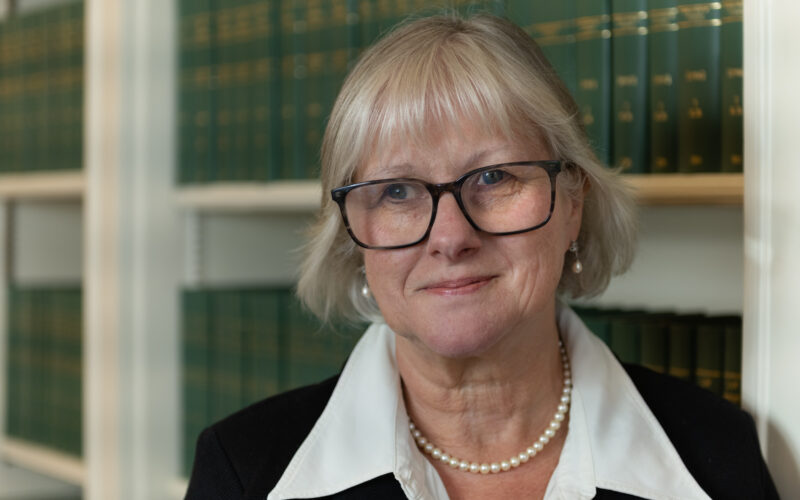Penelope Reed QC, Eliza Eagling and Tracey Angus QC appeared in Cowan v Foreman [2019] EWCA (Civ) 1336
The Court of Appeal has given the Appellant permission to commence proceedings out of time under the Inheritance (Provision for Families and Dependants) Act 1975.
Penelope Reed QC and Eliza Eagling acted for the Appellant, Mrs Cowan. Tracey Angus QC acted for the First and Third Respondents in their capacity as trustees of the Michael Cowan Foundation.
Mrs Cowan brought a claim against the estate of her deceased husband Michael Cowan, whose relationship had spanned more than two decades. Probate of the Deceased’s will was on 16 December 2016 and the application was made on 8 November 2018, making it 17 months out of time. On death, the Deceased’s estate was worth a little under £16m.
Under his will the Deceased:-
- Left modest pecuniary bequests to his son, daughter-in-law and stepsons.
- Gave his personal chattels to the Claimant, but these had nominal value.
- Put all of his business interests which qualified for 100% IHT business property relief onto discretionary trusts for a class of beneficiaries including the Claimant, other members of his family, and the Michael Cowan Foundation.
- Left his residuary estate on trust for the same beneficiaries as for the business property trusts, but subject to a revocable life interest in favour of the Claimant. There were overriding powers of appointment in favour of the discretionary beneficiaries. The default beneficiary was the Michael Cowan Foundation.
In the Deceased’s Letter of Wishes he explained that he wished for two funds of £500,000 to be set aside in the business property trust. Subject to that the trustees were to regard Mrs Cowan as the principal beneficiary of the business property trust, and also the principal beneficiary of the residuary trust.
Mostyn J dismissed the application for permission to bring proceedings out of time. The Court of Appeal gave the Appellants permission to appeal.
On appeal Asplin LJ, giving the lead judgment, held that Mostyn J was “plainly wrong to come to the conclusion he did” and that it was appropriate that the Court of Appeal should exercise the power under s. 4. Asplin LJ gave permission to commence proceedings out of time, with which Baker LJ and King LJ agreed.
Asplin LJ’s judgment sets out a number of legal principles regarding permission applications:
- Section 4 does not exist to protect the court from “stale claims” as Mostyn J suggested. It is there to provide protection for PRs.
- There is no disciplinary element to section 4. Asplin LJ cited Chief Master Marsh from Bhusate v Patel [2019] EWHC 470 (Ch) at 64: to have regard to the Denton approach to relief from sanctions when exercising the discretion under section 4 “involves conflating issues that, if they are related, are at best distant cousins”.
- The proper approach is to consider all the Berger factors and give them appropriate weight in the particular circumstances of the case. In this case Mostyn J’s approach to section 4 polarised his thinking, and he failed to consider all relevant factors, in particular whether the estate had been distributed and whether prejudice would be caused if permission were granted to make the claim out of time.
- It is not necessarily true there must be “good reason” for a delay in every case, each case turns on its own facts.
- It is necessary to decide whether an applicant’s claim has a real prospect of success (the summary judgment test) rather than a fanciful one. In determining this question, Mostyn J failed to have proper regard to all the circumstances of the case (size of the estate, length of the relationship, that Mrs Cowan had no autonomy and no security, even in her home of more than 20 years). He also relied upon two erroneous matters. He held that a claim for outright provision from the estate could not have any merit because that claim was “tantamount to saying that every widow has an entitlement to outright testamentary provision from her husband” and would “in effect, introduce a form of forced spousal heirship”. But there is no “forced spousal heirship”, each case is fact specific and must be considered in the light of the relevant factors. Mostyn J also wrongly concluded it would be an actionable breach of trust to defy the Letter of Wishes.
- As for standstill agreements, Asplin LJ said this:-“It seems to me that although the Judge was correct to conclude that the effect of section 4 is that the legislature has determined that the power to extend the six- month period belongs to the court, and that any agreement not to take a point about delay cannot be binding, without prejudice negotiations rather than the issue of proceedings should be encouraged. Although the potential claimant will have to take a risk if an application is made subsequently to extend time in circumstances where negotiations have failed, if both parties have been legally represented, it seems to me that it would be unlikely that the court would refuse to endorse the approach.”
- As for delay, although Berger specifically mentions negotiations before the expiry of the six-month time period, it may be appropriate to give weight to negotiations which take place after this date. Here, negotiations continued after the expiry of the time period. On receipt of the letter of claim, Mrs Cowan was encouraged to entire into without prejudice negotiations and then to mediate. This was a positive factor and should not be held against Mrs Cowan.




